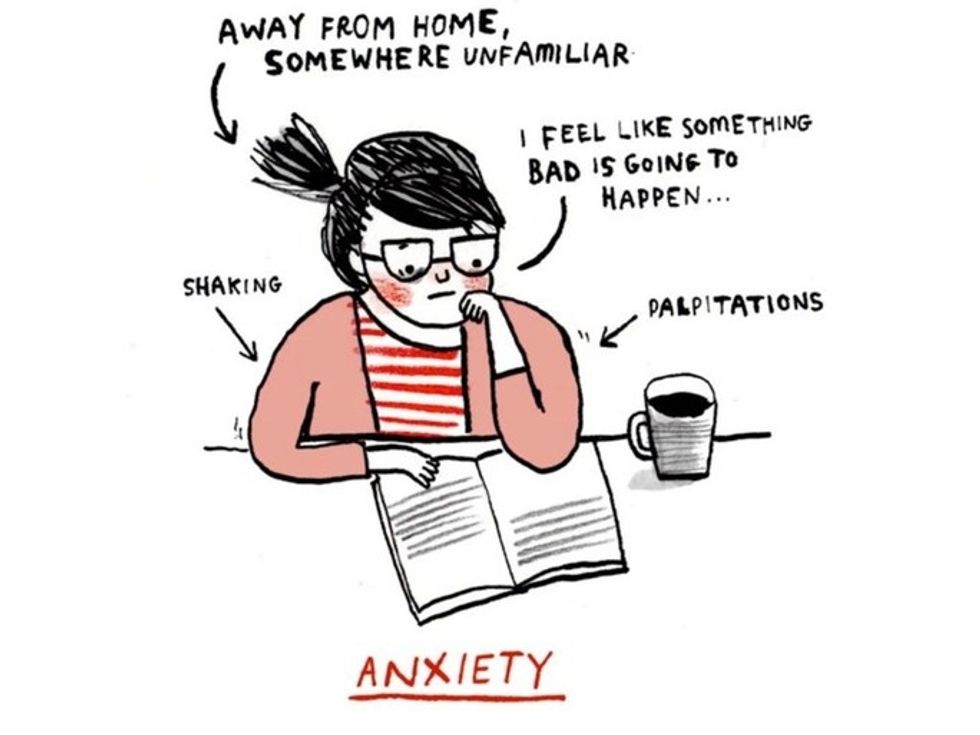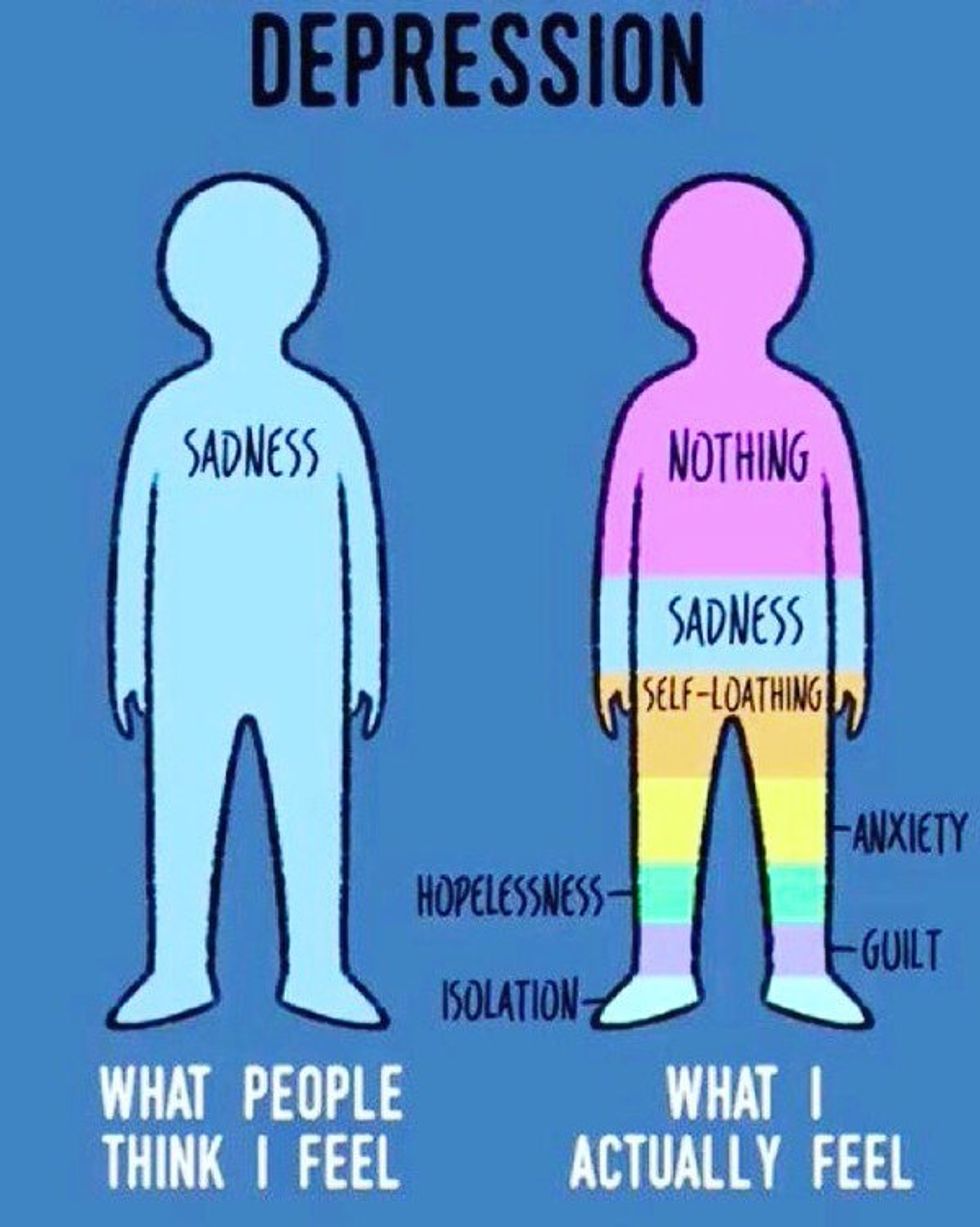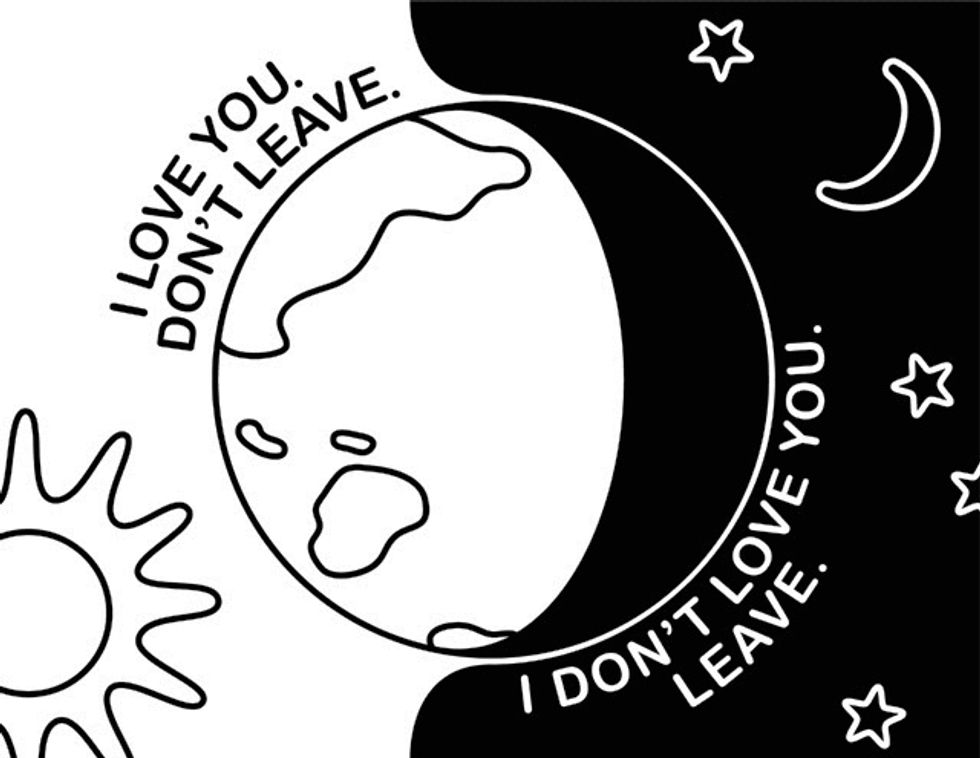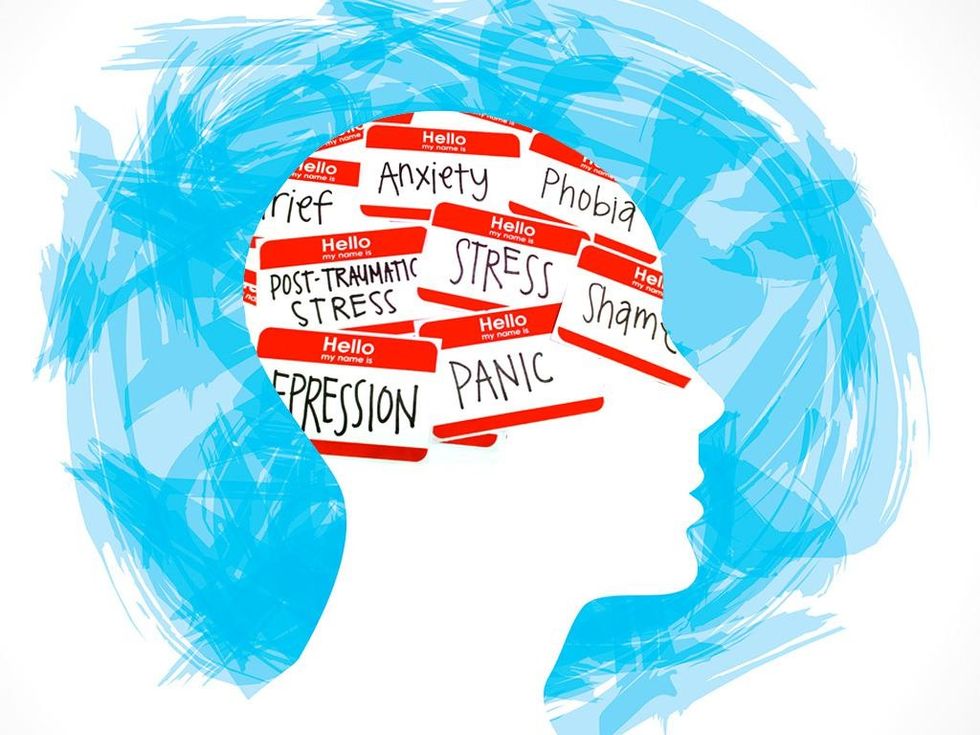I have struggled with mental illness for years. For as long as I can remember, I was nervous and very cautious. More so than most people were. I would purposely avoid situations that would make me feel that way. As I grew up, I never grew out of my "shy" phase I have been diagnosed with generalized anxiety disorder. I have been diagnosed with major depressive disorder. I have also experienced depression for years. I more so felt it during middle and high school. I had some emotional traumatic events that happened in those years that added to it. Recently, I figured out I might have some traits of borderline personality disorder which adds to my depression and anxiety. I noticed this when I talked about lots of anger and mood swings to my doctor. Of the nine symptoms I have seven, so my doctor decided I definitely could also struggle with BPD as well. Mental illness does not define me as a person. I'm not crazy, I'm not rude, nor am I weird. I'm a person who just lacks some serotonin that most people have. It's just a medical condition and it's nothing to be ashamed of.
Generalized Anxiety Disorder

What is generalized anxiety disorder? The DSM defines it as:
"Excessive anxiety and worry (apprehensive expectation), occurring more days than not for at least 6 months, about a number of events or activities (such as work or school performance).
B. The individual finds it difficult to control the worry.
C. The anxiety and worry are associated with three (or more) of the following six symptoms (with at least some symptoms having been present for more days than not for the past 6 months): Note: Only one item required in children.
1. Restlessness, feeling keyed up or on edge.
2. Being easily fatigued.
3. Difficulty concentrating or mind going blank.
4. Irritability.
5. Muscle tension.
6. Sleep disturbance (difficulty falling or staying asleep, or restless, unsatisfying sleep). D.
The anxiety, worry, or physical symptoms cause clinically significant distress or impairment in social, occupational, or other important areas of functioning.
E. The disturbance is not attributable to the physiological effects of a substance (e.g., a drug of abuse, a medication) or another medical condition (e.g., hyperthyroidism). F. The disturbance is not better explained by another medical disorder (e.g., anxiety or worry about having panic attacks in panic disorder, negative evaluation in social anxiety disorder [social phobia], contamination or other obsessions in obsessive-compulsive disorder, separation from attachment figures in separation anxiety disorder, reminders of traumatic events in post traumatic stress disorder, gaining weight in anorexia nervosa, physical complaints in somatic symptom disorder, perceived appearance flaws in body dysmorphic disorder, having a serious illness in illness anxiety disorder, or the content of delusional beliefs in schizophrenia or delusional disorder)."
To put it into more simple terms, someone with generalized anxiety disorder excessively worries about things they can and can't control. It could be school, work, family related, or any number of things. This excessive worry makes it hard for some like me to function normally. I take medications to help control my anxiety. I've purposely missed out on things due to my anxiety. I could've had a fun time with my friends but I had so much anxiety about it I skipped it and sat in my room instead. I've also experienced panic attacks which can be scary. I have had panic attacks about going to class because I missed the previous one. I've had panic attacks about being alone. I start breathing heavily, crying, shaking, my heart feels like it's beating out of my chest. It's so hard to calm down once you're in this state. Sometimes having help from family and friends can be very beneficial. Having anxiety is more than just a little worry here and there. Someone can worry a lot but not be diagnosed with anxiety. It's more than just an excessive worry. Anxiety can affect your everyday life as well as how you live it. It's okay to take meds if you have trouble controlling your anxiety. It's okay to ask for help from medical professionals and your loved ones. Anxiety is treatable, you are not crazy.
Major Depressive Disorder

There are many different types of depression. The one I experience is Major Depressive Disorder. MDD can be defined as:
In typical, mild, moderate, or severe depressive episodes the patient suffers from lowering of mood, reduction of energy and decrease in activities. Their capacity for enjoyment, interest, and concentration is reduced and is marked by tiredness after even a minimum of effort is common. Sleep patterns are usually disturbed and appetite diminished along with reduced self‐confidence and self‐esteem.
Depression is more than just being sad all the time. I get in these moods where I just wanna sleep all day and I don't want to do anything. No matter how much I love doing something, sometimes my depression gets in the way and I have no desire to do those things anymore. I've very indecisive about a lot of things, I can't make up my mind nor can I make decisions. I can't focus or concentrate sometimes which makes doing school work a lot harder. My energy is so low it's hard to get out of bed and get dressed some days. Some days I don't want to do anything at all but sleep. I hate myself for it and I hate feeling that way. I also lack self-esteem. I find it hard to love someone who is as depressed as me. I feel as though I'm a failure, even though deep down I know I'm not. It's hard for me to be positive some days and be happy. I hate when people tell me to stop being so negative, if I would I could. I don't enjoy being like this so don't try and tell me to be more positive and happy. I take medication for my depression to help stabilize my moods and there is nothing wrong with that.
Borderline Personality Disorder

Borderline Personality disorder can be defined as:
A pervasive pattern of instability of interpersonal relationships, self-image, and affects, and marked impulsivity beginning by early adulthood and present in a variety of contexts, as indicated by five (or more) of the following:
(1) frantic efforts to avoid real or imagined abandonment. Note: Do not include suicidal or self-mutilating behavior covered in Criterion 5.
(2) a pattern of unstable and intense interpersonal relationships characterized by alternating between extremes of idealization and devaluation
(3) identity disturbance: markedly and persistently unstable self-image or sense of self
(4) impulsivity in at least two areas that are potentially self-damaging (e.g., spending, sex, substance abuse, reckless driving, binge eating). Note: Do not include suicidal or self-mutilating behavior covered in Criterion 5.
(5) recurrent suicidal behavior, gestures, or threats, or self-mutilating behavior
(6) affective instability due to a marked reactivity of mood (e.g., intense episodic dysphoria, irritability, or anxiety usually lasting a few hours and only rarely more than a few days)
(7) chronic feelings of emptiness
(8) inappropriate, intense anger or difficulty controlling anger (e.g., frequent displays of temper, constant anger, recurrent physical fights)
(9) transient, stress-related paranoid ideation or severe dissociative symptoms
Borderline Personality Disorder is not as scary as it sounds. It actually is just varying moods and behaviors. It also makes you experience intense anger, depression and anxiety that can last anywhere from a few hours to a few days. Something that I experience is all or nothing behavior. Things are either great or awful. I have days where I love everything, or I hate everything. My opinions of people also can change very quickly. I can love someone one day and be mad at them the next. I experience a lot of anger that I can't control. I yell a lot sometimes for no reason. Out of nowhere I'll just get really angry, I know in the moment it's wrong, but I can't control it. I impulsively shop, it's crazy but I could shop everyday all day. Whenever I have money, I blow it. I know I don't need to buy whatever I am, but I also feel like I have to buy things to feel whole. It's a struggle but therapy is the best thing to do when experiencing this. It can be very helpful in the process and help to learn new coping skills for when you start to feel it coming on.
These mental illness do not define me as a person. Taking medications are okay, going to therapy is okay, asking for help is okay! If you feel as though you may be struggling with mental illnesses please reach out to your doctor who can help you Don't be afraid to ask for help, mental illnesses are not bad, they are just like any other medical condition. They do not make you less of a person. Do not let the negative stigma around this topic scare you away. It'll be okay, everything will work out in the end I promise.
- You Are Not Your Mental Illness ›
- A College Student's Perspective On Mental Illnesses ›
- 8 Ways To Overcome Mental Illness ›



















